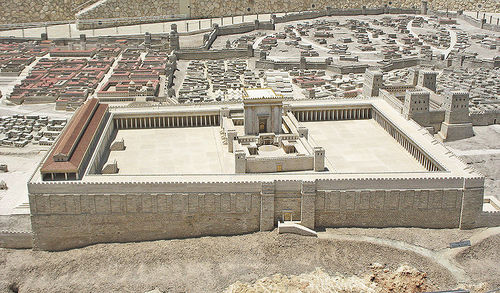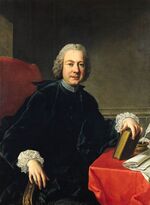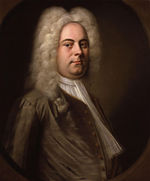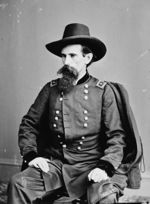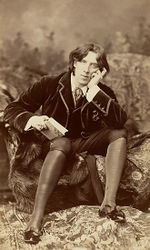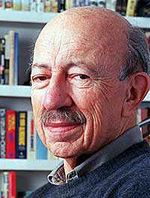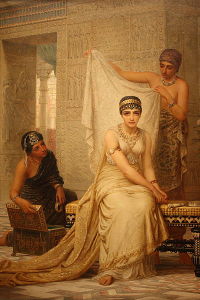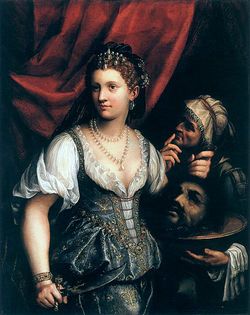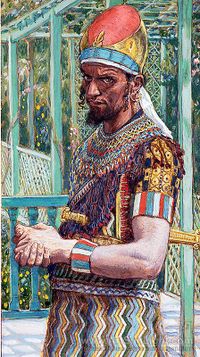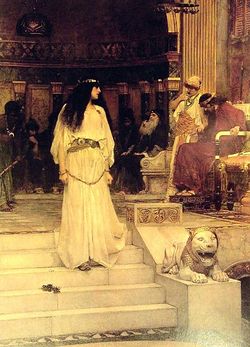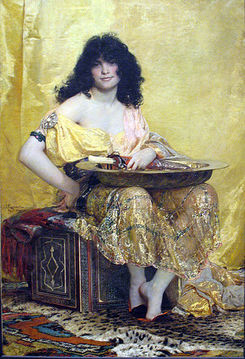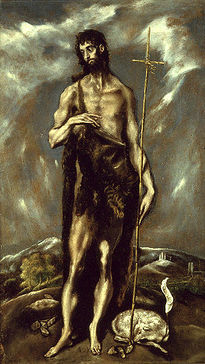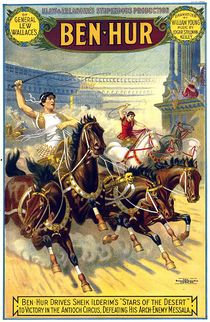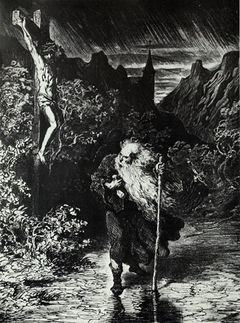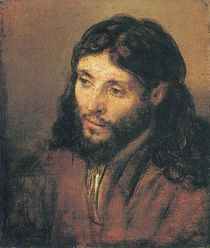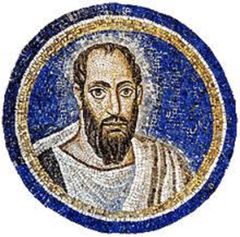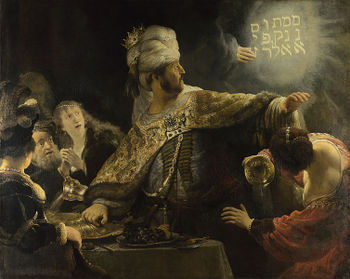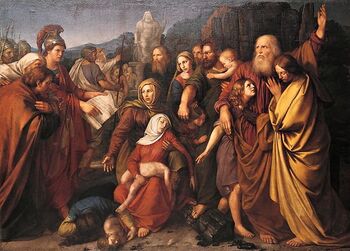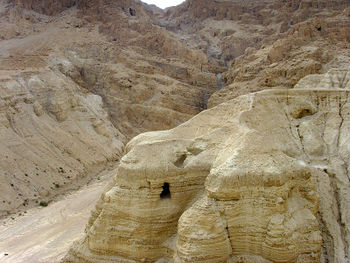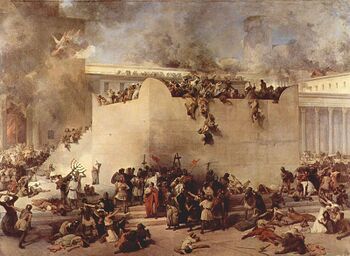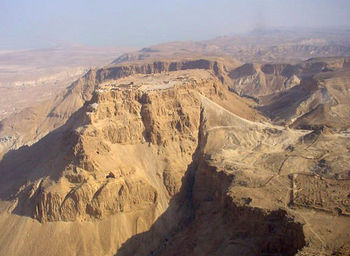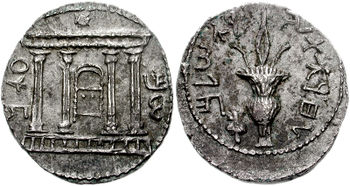Difference between revisions of "Category:Second Temple Studies--Fiction"
| Line 17: | Line 17: | ||
}} | }} | ||
[[File:Pietro Metastasio.jpg|thumb|150px|[[Pietro Metastasio]]]] | |||
[[File:Georg Frideric Haendel.jpg|thumb|150px|[[Georg Frideric Haendel]]]] | [[File:Georg Frideric Haendel.jpg|thumb|150px|[[Georg Frideric Haendel]]]] | ||
[[File:Lew Wallace.jpg|thumb|150px|[[Lew Wallace]]]] | [[File:Lew Wallace.jpg|thumb|150px|[[Lew Wallace]]]] | ||
| Line 69: | Line 70: | ||
|content= | |content= | ||
[[Esther]] and [[Judith]] are the first (fictional) characters of Second Temple Judaism, who received attention by modern | [[Esther]] and [[Judith]] are the first (fictional) characters of Second Temple Judaism, who received attention by modern novelists and artists. Their stories were located in an ill-defined "ancient" Israel with no attempt at historical accuracy. On the other hand, the tradition of the "vindicta Salvatoris" had a much more precise historical setting, but also a very specific theological agenda, focusing on the destruction of Jerusalem by Titus as an act of revenge by God for the killing of Jesus by the "Jews". | ||
The rediscovery of Josephus on the 16th century provided a | The rediscovery of Josephus on the 16th century provided a vivid and "accurate" setting for characters taken from his writings or events that could be located in the same framework. Some characters (either historical or ficticious) became popular: Herod and Mariamne, the Wandering Jew, Titus and Berenice... | ||
The oratorio in the 18th century was the best means to popularize biblical events. Librettists like [[Apostolo Zeno]] and [[Pietro Metastasio]] imagined beautiful stories on the background of the Second Temple. Some composers like [[Georg Frideric Haendel]] showed a particular fascination for the period. | |||
After the oratorio, it was the opera. Mozart's ''La clemenza di Tito'' , Rossini's ''Ciro in Babilonia'', and Verdi's ''Nabucco'' had all a Second Temple Jewish setting. | |||
Especially, with the success of historical novels on biblical subjects, the events of the Second Temple period became more and more familiar to European and American audiences. The popularity of Ben Hur and Salome was fueled by the fascination for the Orient that permeated the arts at the turn of the 20th century. The novel of [[Lew Wallace]] as well as [[Oscar Wilde]]'s play and [[Richard Strauss]]'s opera are among the best known masterpieces of the period and were received enthusiastically by the public. | |||
Zionism focused on the Maccabean revolt as the last glorious chapter of Jewish nationalism and independence and found even in [[Spartacus]] the opportunity to praise Jewish heroism and fighting for liberty. | |||
}} | }} | ||
Revision as of 12:01, 31 August 2018
|
The page: Second Temple Fiction contains (in chronological order} more than 400 fictional works (literature, music, cinema) in the field of Second Temple Studies, from the late 15th century to the present. The major subjects are here listed to facilitate the finding of the material.
Highlights
Highlights Esther and Judith are the first (fictional) characters of Second Temple Judaism, who received attention by modern novelists and artists. Their stories were located in an ill-defined "ancient" Israel with no attempt at historical accuracy. On the other hand, the tradition of the "vindicta Salvatoris" had a much more precise historical setting, but also a very specific theological agenda, focusing on the destruction of Jerusalem by Titus as an act of revenge by God for the killing of Jesus by the "Jews". The rediscovery of Josephus on the 16th century provided a vivid and "accurate" setting for characters taken from his writings or events that could be located in the same framework. Some characters (either historical or ficticious) became popular: Herod and Mariamne, the Wandering Jew, Titus and Berenice... The oratorio in the 18th century was the best means to popularize biblical events. Librettists like Apostolo Zeno and Pietro Metastasio imagined beautiful stories on the background of the Second Temple. Some composers like Georg Frideric Haendel showed a particular fascination for the period. After the oratorio, it was the opera. Mozart's La clemenza di Tito , Rossini's Ciro in Babilonia, and Verdi's Nabucco had all a Second Temple Jewish setting. Especially, with the success of historical novels on biblical subjects, the events of the Second Temple period became more and more familiar to European and American audiences. The popularity of Ben Hur and Salome was fueled by the fascination for the Orient that permeated the arts at the turn of the 20th century. The novel of Lew Wallace as well as Oscar Wilde's play and Richard Strauss's opera are among the best known masterpieces of the period and were received enthusiastically by the public. Zionism focused on the Maccabean revolt as the last glorious chapter of Jewish nationalism and independence and found even in Spartacus the opportunity to praise Jewish heroism and fighting for liberty.
|
|
Second Temple Fiction
Major Subjects
- Persian Period : Esther
- Roman Period : Herod the Great -- Herod Antipas -- Herodias -- Salome -- Salome -- John the Baptist -- Ben-Hur -- Jewish War -- Masada -- Josephus -- Berenice -- Titus -- Esther of Engaddi -- Bar-Kokhba
Subcategories
This category has the following 2 subcategories, out of 2 total.
Pages in category "Second Temple Studies--Fiction"
The following 200 pages are in this category, out of 1,195 total.
(previous page) (next page)1
- == == 1450s == == ==
- Storie sacre (Sacred Narratives / 1475c Tornabuoni), poetry
- == == 1500s == == ==
- Judita (Judith / 1521 Marulić), poetry (Croatian)
- Commedia della vita e della morte di S. Giovanni Battista (1525 Ottonaio), play
- Iudith (1532 Birck), play
- Johan Baptystes Preachynge in the Wyldernesse (1538 Bale), play
- Baptistes (1540 Buchanan), play
- Archipropheta (1547 Grimald), play
- Johannes der Täufer (1549 Aal), play
- Judith mit Holophernes (1551 Sachs), play
- Der wüterich König Herodes (1552 Sachs), play
- Die Maccabäer (1552 Sachs), play
- La Mariana (1560 Dolce), play
- Rivus Cedron (1561 Conradinus), poetry
- La gloriosa e trionfante vittoria donata dal grande Iddio al popolo hebreo per mezzo di Giuditta sua fidelissima serva (1564 Sacchetti), play
- Herodes (1567 Goldingham), play
- The Destruction of Jerusalem (1577 Legge), play
- Judit (Judith / 1584 Du Bartas), poetry
- The Destruction of Jerusalem (1584 Smythe), play
- Eleazarus Machabaeus (1587 Pontanus), play
- Oloferne (1594 Alberti), play
- Imitation de la victoire de Judich (Imitation of the Victory of Judith / 1594 Coignard), poetry
- Love's Labour's Lost (1594 Shakespeare), play
- Divine & heureuse victoire des Machabées sur le Roi Antiochus (1596 Virey du Gravier), play
- La Machabée (1596 Virey du Gravier), play
- == == 1600s == == ==
- Judas Maccabaeus (1601 Haughton), play
- Giudetta (1602 Lottini), play
- La gitana melancólica (1608 Aguilar), play
- La Reina Ester (1615 Cebà), poetry
- Ester (1619 Modena), play
- Hierusalem Verwoest (Jerusalem Laid Desolate / 1620 Vondel), play (Dutch)
- Herodiados (1622 Bidermann), play
- Herod and Antipater, with the Death of Faire Mariam (1622 Markham/Sampson), play
- Mariamne (1624 Hardy), play
- The Jewes Tragedy (1626 Heminges), play
- La Giudea distrutta da Vespasiano e Tito (1627 Finella), play
- Esther (1628 Della Valle), play
- Iudit (1628 Della Valle), play
- Herodes infanticida (1632 Heinsius), play
- La strage degl'innocenti (The Slaughter of the Innocents / 1632 Marino), poetry (Italian)
- Rerum Iudaicarum memorabiliorum, ab exitu ex Aegypto ad ultimum usque Hierosilymitanum excidium (1632 Ross), book
- La cena del rey Baltasar (1634 Calderón de la Barca), play
- El mayor monstruo, los celos (1635 Calderón de la Barca), play
- La vida y muerte de Herodes (1636 Molina), play
- La Mariane (1636 Tristan L'Hermite), play
- Moord der onnozelen = Herodes infanticida (1639 @1632 Heinsius), play (Dutch ed.)
- La mort des enfants d'Herode (1639 La Calprenède), play
- L’ebrea famelica (The Famishing Jewess / 1640 Caputi / Vittori), oratorio (music & libretto)
- Los desagravios de Christo (1640 Cubillo de Aragón), play
- Judas Macabeo (1641 Calderón de la Barca), play
- (++) Lettres de Bérénice à Titus (Letters of Berenice to Titus / 1642 Scudéry), novel
- Herodes der Kindermörder (Herod the Child Murderer / 1645 Klaj), play
- Clêopâtre (1648 La Calprenède), play
- Bérénice (1648 Segrais), novel
- Mariamne (1650 Manuche), play
- Herodes Ascalonita y la hermosa Mariana (1658 Lozano), play
- Tite (1660 Magnon), play
- Herodes der Kindermörder (Herod the Child Murderer / 1663 Gryphius), play
- La strage degli innocenti (1665 Bertali), oratorio
- Il Tito (Titus / 1666 Cesti / Beregani), opera (music & libretto), Venice premiere
- La Pellegrina ingrandita; ovvero, La Regina Ester (1666 Torre), play
- Dialogus de Judith et Holoferne (1667 Förster), oratorio
- Giona profeta (The Prophet Jonah / 1667 Pedrazzoli / Draghi), oratorio
- Il Tito (1668 Binitti), opera
- La Giuditta (Judith / 1668 Cazzati), oratorio
- La Giuditta (Judith / 1668 Draghi), oratorio
- Judith; sive, Bethulia liberata (1670 Charpentier), oratorio
- Tite et Bérenice (1670 Corneille), play
- Mariamne (1670 Hallmann), play
- Herod the Great (1672 Boyle), play
- Tite et Titus; ou, Les deux Bérénices (1673 Anonymous), play
- Herod and Mariamne (1673 Pordage), play
- Li Maccabei (The Maccabees / 1674 Bicilli / Mazzei), oratorio
- Herodes der Kindermörder (Herod the Child Murderer / 1675 Heinlein / Faber), oratorio
- San Giovanni Battista (St. John the Baptist / 1675 Stradella / Ansaldi), oratorio
- Gli sponsali d'Ester (The Nuptials of Esther / 1676 Legrenzi / Orsi), oratorio
- Titus and Berenice (1676 Otway), play
- The Destruction of Jerusalem by Titus Vespasian (1677 Crowne), play
- Ester liberatrice del popolo ebreo (Esther Liberating the Jewish People / 1677 Stradella / Orsini), oratorio
- Die Makkabäische Mutter mit ihren sieben Sohnen (1679 Franck / Elmenhorst), oratorio
- La madre de' Maccabei (The Mother of the Maccabean Martyrs / 1685 Mercuriali / Gigli), oratorio
- La Giuditta (Judith / 1686 Ziani), oratorio
- The History of the Nine Worthies of the World (1687 Burton), novel
- Superbia depressa in fornace babilonica (1687 Foggia / Capistrelli), oratorio
- L'Erodiade; ovvero, La morte di S. Giovanni Battista (Herodias; or, The Death of St. John the Baptist / 1687 Legrenzi / Neri), oratorio
- La madre de' Maccabei (The Mother of the Maccabean Martyrs / 1688 Fabbrini / 1685 Gigli), oratorio
- La fornace di Nabuc di Nasor (1688 Pagano), oratorio
- Il Giona (Jonah / 1689 Bassani / Ambrosini), oratorio
- Esther (1689 Racine), play
- Il Giona (Jonah / 1689 Vitali / Bartoli), oratorio
- Bettuglia liberata (1690 Colonna / Bergamori), oratorio
- Il convito di Baldassarro (Belshazzar's Feast / 1691 Albergati / Cintoli), oratorio
- Gerusalemme destrutta da Tito (1691 Cattani / Fineschi), oratorio
- Die Zerstörung Jerusalems (The Destruction of Jerusalem / 1692 Conradi / Postel), opera (music & libretto), Hamburg premiere
- Le nozze di Tobia (1692 Viviani / Fineschi), oratorio
- La Giuditta, "Rome version" (1693 Scarlatti / Ottoboni), oratorio
- Il viaggio di Tobia (1695 Casini), oratorio
- Judas Machabeus (1695 Cola), oratorio
- L'Esterre (Esther / 1695 Muratori-Scannabecchi / Bergamori), oratorio
- I fanciulli babilonesi (The Babylonian Children / 1696 Orlandini), oratorio
- La Mariamne (Mariamne / 1696 Ruggieri / Burlini), opera (music & libretto), Venice premiere
- Juda Machabeus (1697 Pulci), oratorio
- La Giuditta, "Cambridge version" (1697 Scarlatti / Ottoboni), oratorio
- Il ritorno di Tobia (1698 Badia / Del Negro), oratorio
- Caligula (1698 Crowne), play
- La decollazione di S. Giovanni Battista (1699 Ingegneri), oratorio
- == == 1700s == == ==
- La Giuditta (1701 Lotti), oratorio
- Judae Machabei gloriosa in Deum fiducia (1702 Adolph), play
- La madre de' Maccabei (The Mother of the Maccabean Martyrs / 1704 Ariosti / 1685 Gigli), oratorio
- Mater Machabaeorum (1704 Arresti), oratorio
- La madre de' Maccabei (The Mother of the Maccabean Martyrs / 1705 Aldrovandini / 1685 Gigli), oratorio
- La Giuditta (Judith / 1706 Buonaccorsi), oratorio
- La regina Ester (1706 Saratelli), oratorio
- La decollazione del S. Precursore Giovanni Battista (1708 Arresti / Grappelli), oratorio
- Esther (1708 Jacquet de La Guerre), oratorio
- Judith (1708 Jacquet de La Guerre), oratorio
- Il martirio de' Maccabei (1709 Badia / Stampiglia), oratorio
- La decollazione di San Giovanni Battista (1709 Bononcini), oratorio
- Agrippina (1709 Haendel / Grimani), opera (music & libretto), Venice premiere (cast)
- Hérode (1709 Nadal), play
- Daniele (Daniel / 1709 Rotondi / Grappelli), oratorio
- La Giuditta (1710 Badia / Stampiglia), oratorio
- L'umiltà coronata in Esther (1712 Lotti / Pariati), oratorio
- Der schönen Esther Lebensgeschichte (1713 Lehms), novel
- Tito e Berenice (Titus and Berenice / 1714 Caldara / Capece), opera (music & libretto), Rome premiere (cast)
- La donna forte nella madre dei sette Maccabei (1714 Fux / Pariati), oratorio
- La fede sacrilega nella morte del Precursore S. Giovanni Battista (Sacrilegious Faith in the Death of the Precursor, St. John the Baptist / 1714 Fux / Pariati), oratorio
- La decollazione di San Giovanni Battista (1715 Grimani), oratorio
- Juditha triumphans (1716 Vivaldi / Cassetti), oratorio
- La Giuditta (1717 Arresti), oratorio
- Herodes (Herod the Great / 1718 Schürmann / Müller), opera (music & libretto), Brunswick premiere
- La regina Ester (1719 Berti / Aceti), oratorio
- La madre de’ Maccabei (1719 Massarotti), oratorio
- Tobia (1720 Porsile / Zeno), oratorio
- L'incoronazione di Ester (1720 Ristori / Ginori), oratorio
- Les Machabées (1721 La Motte), play
- La decollazione di San Giovanni Battista (1721 Predieri), oratorio
- Gli eccessi della gelosia (1722 Albinoni), opera
- Esther; ovvero, L'umiltà coronata (1722 Clari), oratorio
- Antiochus; ou, Les Machabées (1722 Nadal), play
- L'Ester (1723 Bellinzani / Ercolani), oratorio
- Ester (1723 Caldara / Fozio), oratorio
- (+) Mariamne (1723 Fenton), play
- Il ritorno di Tobia (1723 Lotti / Melani), oratorio
- L'Ester (1723 Orlandini / Melani), oratorio
- Jonathas le Machabée (1723 Père de la Sante), play
- Il trionfo di Giuditta (1723 Porsile / Maddali), oratorio
- La Mariane (1724 Albinoni/Porta), opera
- L'Agrippa tetrarca di Gerusalemme (1724 Buini), opera
- Ester (1724 Sarro), oratorio
- Mariamne (1724 Voltaire), play
- Mariamne (1725 Nadal), play
- Berenice (1725 Orlandini / Pasqualigo), opera (music & libretto), Venice premiere (cast)
- La Giuditta (1726 Almeida), oratorio
- Spartaco (Spartacus / 1726 Porsile / Pasquini), opera (music & libretto)
- Il Batista (John the Baptist / 1727 Caldara / Zeno), oratorio (music & libretto), Vienna premiere (cast)
- Tobia il giovine (1727 Galuppi / Giupponi), oratorio
- Daniello (Daniel / 1731 Caldara / @1731 Zeno), oratorio
- Il Titto / Titus l'empereur (Titus / 1731 Haendel), opera (music)
- Daniello (Daniel / 1731 Hasse / @1731 Zeno), oratorio
- Daniello (Daniel / 1731 Zeno), libretto
- L'osservanza della divina legge martirio de' Maccabei (1732 Conti / Lucchini), oratorio
- (+) Esther (1732 Haendel), oratorio
- La Gerusalemme convertita (1733 Caldara / Zeno), oratorio
- Judith (1733 Fesch / Huggins), oratorio
- L'Ester (1733 Manzoni Giusti), play
- Il ritorno di Tobia (1733 Reutter / Pasquini), oratorio
- La Gerusalemme convertita (1733 Zeno), libretto
- La clemenza di Tito (The Clemency of Titus / 1734 Caldara / @1734 Metastasio), opera (music), Vienna premiere
- Il cantico de' tre fanciulli (1734 Hasse / Pallavicini), oratorio
- (++) La Betulia liberata (The Liberation of Bethulia / 1734 Metastasio), libretto
- La clemenza di Tito (The Clemency of Titus / 1734 Metastasio), libretto (opera)
- La Valiente Judith (The Brave Judith / 1734 Picanyol), oratorio
- La Betulia liberata (The Liberation of Bethulia / 1734 Reutter / @1734 Metastasio), oratorio (music), Vienna premiere
- La clemenza di Tito (The Clemency of Titus / 1735 Leo / @1734 Metastasio), opera (music), Venice premiere (cast)
- La Giuditta (Judith / 1735 Wassmuth), oratorio
- La clemenza di Tito (The Clemency of Titus / 1736 Ciocchetti / @1734 Metastasio), opera (music), Genoa premiere (cast)
- La clemenza di Tito (The Clemency of Titus / 1736 Peli / @1734 Metastasio), opera (music), Munich premiere
- La Betulia liberata (The Liberation of Bethulia / 1737 Leoni / @1734 Metastasio), oratorio (music), Genoa premiere
- La clemenza di Tito (The Clemency of Titus / 1737 Marchi / @1734 Metastasio), opera (music), Milan premiere (cast)
- La madre de’ Maccabei (1737 Porsile / Manzoni), oratorio
- La clemenza di Tito / The Clemency of Titus (1737 Veracini / Cori, @1734 Metastasio), opera (music), London premiere (cast)
- La clemenza di Tito (The Clemency of Titus / 1738 Arena / @1734 Metastasio), opera (music), Turin premiere (cast)
- La Betulia liberata (The Liberation of Bethulia / 1738 Bernasconi / @1734 Metastasio), oratorio (music), Vienna premiere
- Ester (1740 Pampani / Cordara), oratorio
- Herod the Great (1740 Peck), poetry
- La Triunfante Judith (Judith Triumphant / 1742 Figuera), oratorio
- La Betulia liberata (The Liberation of Bethulia / 1743 Jommelli / @1734 Metastasio), oratorio (music), Venice premiere
- La Betulia liberata (The Liberation of Bethulia / 1743 Redi / @1734 Metastasio), oratorio (music), Florence premiere
- Il profeta Daniele (Daniel the Prophet / 1744 Bigaglia / Giupponi), oratorio
- Belshazzar (1745 / @1745 Haendel), London production, world premiere (oratorio)
- Belshazzar (1745 Haendel / Jennens), oratorio
- La madre de' Maccabei (1745 Mazzoni / Belletti), oratorio
- La Betulia liberata (The Liberation of Bethulia / 1746 Angelini / @1734 Metastasio), oratorio (music), Perugia premiere
- La Betulia liberata (The Liberation of Bethulia / 1746 Cafaro / @1734 Metastasio), oratorio (music), Naples premiere
- Judith (1746 Galuppi), oratorio
Media in category "Second Temple Studies--Fiction"
The following 38 files are in this category, out of 38 total.
- 1602 * Anonymous.png 250 × 349; 122 KB
- 1604 * Cary (play).jpg 354 × 500; 59 KB
- 1637 * Poussin (art).jpg 800 × 593; 110 KB
- 1670 * Racine (play).jpg 333 × 499; 27 KB
- 1821 Pellico (play).png 420 × 595; 153 KB
- 1840 * Peploe (novel).jpg 375 × 499; 25 KB
- 1848 Pacini (opera).jpg 293 × 500; 36 KB
- 1849 * Hebbel (play).jpg 1,200 × 1,695; 260 KB
- 1880 * Wallace (novel).jpg 333 × 499; 34 KB
- 1914 Griffith (film).jpg 312 × 445; 25 KB
- 1916 Griffith (film).jpg 403 × 599; 80 KB
- 1918 Edwards (film).jpg 330 × 523; 93 KB
- 1925 Dwan (film).jpg 183 × 275; 9 KB
- 1925 * Niblo (film).jpg 406 × 599; 81 KB
- 1926 Luitz-Morat (film).jpg 148 × 216; 13 KB
- 1931 * Walton (oratorio).jpg 340 × 499; 25 KB
- 1934 DeMille (film).jpg 234 × 350; 53 KB
- 1945 Lamont (film).jpg 182 × 268; 23 KB
- 1948 * Fast (novel).jpg 375 × 499; 35 KB
- 1948 Alessandrini (film).jpg 230 × 345; 46 KB
- 1950 Wilder (film).jpg 209 × 299; 23 KB
- 1953 * Dieterle (film).jpg 214 × 387; 27 KB
- 1959 Tourjansky (film).jpg 299 × 472; 161 KB
- 1959 Wyler (film).jpg 394 × 599; 53 KB
- 1960 Kubrick (film).jpg 278 × 418; 42 KB
- 1960 Walsh (film).jpg 200 × 295; 16 KB
- 1970 * Gann (novel).jpg 300 × 436; 22 KB
- 1972 Bene (film).jpg 187 × 270; 17 KB
- 1973 Barker (film).jpg 314 × 463; 35 KB
- 1974 Friedrich (video).jpg 226 × 320; 22 KB
- 1981 * Sagal (TV miniseries).jpg 214 × 317; 12 KB
- 1986 Gitai (film).jpg 214 × 322; 22 KB
- 1987 Magni (film).jpg 176 × 250; 13 KB
- 1988 Russell (film).jpg 330 × 464; 47 KB
- 1993 * Rivers (novel).jpg 999 × 1,500; 133 KB
- 2010 Shill (TV miniseries).jpg 214 × 317; 16 KB
- 2011 * Hoffman (novel).jpg 333 × 499; 29 KB
- 2016 Bekmambetov (film).png 249 × 389; 261 KB
